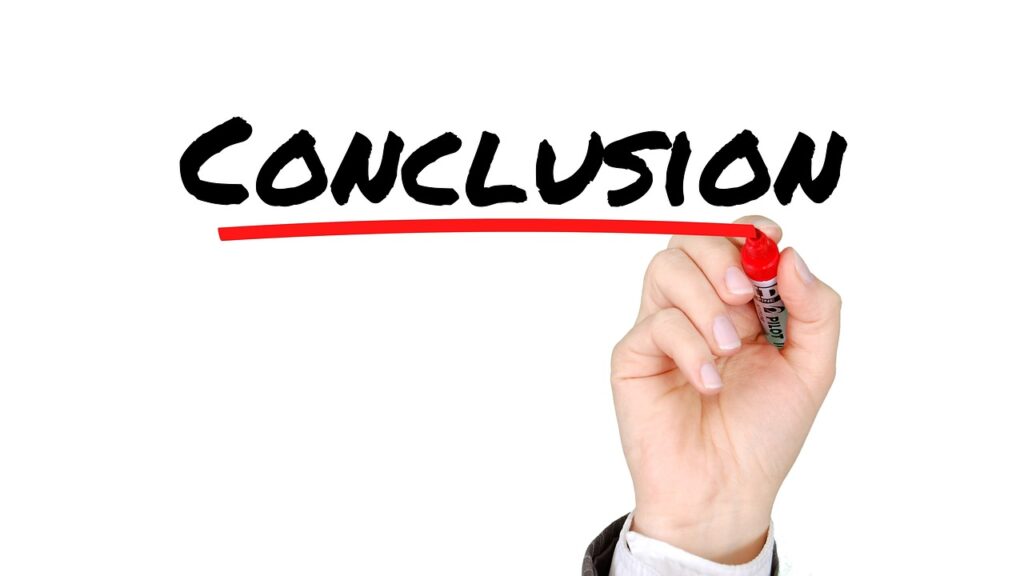Table of Contents
- Introduction
- Personal Background and Experience
- Legal Approach and Strategy
- Communication and Collaboration
- Fees and Billing
- Client Expectations and Outcome
- Alternative Dispute Resolution Options
- Post-Divorce
- Legal Representation and Decision Making
- Conclusion
Introduction
Personal Background and Experience
A divorce lawyer’s personal background and experience are crucial factors to consider during the consultation process. Understanding the lawyer’s length of practice in family law provides insight into their level of expertise and familiarity with the complexities of divorce cases. Additionally, inquiring about the percentage of their practice dedicated to divorce cases helps gauge their specialization and commitment to this area of law.
Lawyers with a substantial portion of their practice devoted to divorce law often possess deeper knowledge and experience in handling various divorce-related issues.
Discussing whether the lawyer has handled cases similar to yours before is also essential for assessing their ability to navigate specific complexities that may arise in your situation. Experience with cases involving child custody disputes, high-net-worth assets, or complex financial arrangements can be particularly valuable.
Additionally, inquiring about their familiarity with the local family court system and judges provides insight into their understanding of procedural nuances and potential strategies tailored to the jurisdiction’s practices and preferences. A lawyer who is well-versed in local court dynamics may offer strategic advantages in advocating for your interests throughout the divorce process.
Questions to Ask a Divorce Lawyer During Consultation:
- How long have you been practicing family law?
- What percentage of your practice is dedicated to divorce cases?
- Have you handled cases similar to mine before?
- Are you familiar with the local family court system and judges?
Legal Approach and Strategy
Understanding the divorce lawyer’s legal approach and strategy is pivotal in assessing how effectively they can advocate for your interests during the intricate divorce proceedings. Begin by exploring the grounds for divorce in your jurisdiction and how they apply to your specific case. This knowledge ensures a foundational understanding of the legal parameters guiding your divorce, helping you make informed decisions and set realistic expectations.
Gaining insights into the typical timeline for divorce proceedings provides essential information for managing expectations and planning for the duration of the legal process. A seasoned lawyer should be able to outline the key milestones and potential challenges, allowing you to navigate the process with a clearer understanding.
In-depth discussions about the lawyer’s negotiation and settlement strategies shed light on their approach to achieving favorable outcomes. Inquire about their methods for facilitating constructive discussions between parties, resolving disputes, and achieving fair settlements. A lawyer who prioritizes alternative dispute resolution methods, such as mediation or collaborative divorce, may signal a commitment to minimizing conflict and promoting amicable solutions.
As well, understanding their stance on litigation and courtroom advocacy is crucial, especially if your case involves contested issues. A lawyer who can strike a balance between assertiveness in court and a willingness to negotiate can provide a well-rounded legal strategy that aligns with your specific needs and goals.
It is essential to discuss how the lawyer approaches complex issues related to child custody, visitation, and support. Gain insights into their strategies for addressing the emotional and legal intricacies of family dynamics. A lawyer who emphasizes the well-being of children and strives to create fair and sustainable agreements may better serve your long-term interests.
Similarly, exploring their tactics for handling complex financial matters, including asset division and alimony, provides a clearer understanding of their ability to protect your financial interests and secure equitable outcomes. By thoroughly exploring these elements of the lawyer’s legal approach and strategy, you can make informed decisions about whether they are well-suited to guide you through each challenge.
Communication and Collaboration
Effective communication and collaboration between you and your divorce lawyer are essential components for navigating the divorce process successfully. Understanding how you will stay in touch with your lawyer and the expected response times can help manage expectations and ensure that you feel supported throughout the process. Clear lines of communication enable you to address concerns, ask questions, and receive updates on the progress of your case in a timely manner.
Ask about the structure of the legal team and your primary point of contact. Understanding whether you will primarily work with the lawyer directly or if other members of their team will be involved ensures clarity in the division of responsibilities and expectations. This discussion also allows you to familiarize yourself with the support staff and resources available to assist you during the divorce process. A cohesive legal team can offer comprehensive support and expertise, enhancing the overall effectiveness of your representation.
Effective communication and collaboration with your divorce lawyer are foundational elements for achieving successful outcomes in your case. By discussing communication protocols, team structure, conflict resolution strategies, and emotional support mechanisms, you can establish a solid foundation for working together towards your goals. A transparent and collaborative relationship with your lawyer ensures that your concerns are heard, your interests are protected, and you are empowered to make informed decisions throughout the divorce process.
Questions to Ask a Divorce Lawyer During Consultation:
- How will we communicate throughout the process, and what is your availability?
- Will I primarily be working with you, or will other members of your team be involved?
- How do you handle conflicts between spouses during the divorce process?
- What are the grounds for divorce in this jurisdiction, and how do they apply to my case?
- What is the typical timeline for divorce proceedings in this jurisdiction?
- How do you approach negotiations and settlements?
- What is your strategy for handling issues such as child custody, visitation, and support?
- How do you handle complex financial matters such as asset division, alimony, and debt allocation?
Fees and Billing
Understanding the financial aspects of hiring a divorce lawyer is crucial for managing expectations and planning accordingly. Begin by discussing the lawyer’s fee structure and whether they charge an hourly rate, a flat fee, or a combination of both. Clarify what services are covered under the fee arrangement and whether there are any additional costs or expenses that you should anticipate. By gaining clarity on the financial terms upfront, you can make decisions about the affordability of hiring the lawyer and ensure there are no surprises.
Ask about any retainer fee that may be required and its amount. Understanding the retainer fee ensures that you are prepared for the initial financial commitment and have a clear understanding of how funds will be allocated throughout the duration of your case. Discuss also the lawyer’s billing practices, including how frequently you will receive invoices and the methods of payment accepted. Open communication about billing procedures fosters transparency and helps establish a clear understanding of financial expectations from the outset.
Consider discussing potential cost-saving strategies and alternatives for managing legal expenses. Does the lawyer offer payment plans or financing options to help alleviate the financial burden of legal fees.? Explore opportunities for cost-effective resolution methods, such as mediation or collaborative divorce, which may result in reduced legal expenses compared to traditional litigation. Understanding your options for managing legal costs helps you make informed decisions about how to proceed with your case while balancing financial considerations.
An explanation of fees and billing practices by your divorce lawyer ensures transparency and clarity regarding the financial aspects of legal representation. By understanding the fee structure, retainer requirements, billing procedures, and potential cost-saving strategies, you can make informed decisions about hiring a lawyer. A clear understanding of the financial implications allows you to budget effectively and focus your resources on achieving your desired outcomes in the most cost-efficient manner possible.
Questions to Ask a Divorce Lawyer During Consultation:
- What are your fees, and how do you structure billing?
- Are there any additional costs or expenses I should be aware of?
- Is there a retainer fee required, and if so, how much?
Client Expectations and Outcome
Discussing client expectations and potential outcomes with your divorce lawyer is crucial for establishing realistic goals and understanding the complexities of your case. Explore the potential outcomes of your case based on the specific circumstances and applicable laws in your jurisdiction. Your lawyer can provide insights into the range of possible outcomes, including division of assets, child custody arrangements, and financial support obligations. Knowing the potential scenarios allows you to make informed decisions and set realistic expectations for the outcome of your divorce.
Inquire about how your lawyer assesses the strengths and weaknesses of your case. Being aware of the key factors that may influence the outcome of your divorce case enables you to strategize effectively and anticipate potential challenges. Your lawyer’s assessment of the strengths and weaknesses provides valuable guidance for navigating negotiations and courtroom proceedings with clarity and confidence.
Chat about the factors that could influence the outcome of your case, including relevant legal precedents, the temperament of the judge, and the willingness of both parties to cooperate. Understanding these variables allows you to evaluate potential risks and opportunities and develop a tailored approach to achieve your desired outcome. Your lawyer can provide valuable insights into how these factors may impact the trajectory of your case and advise you on the most effective strategies for achieving your goals.
Discuss too how your lawyer prioritizes your goals and concerns during the divorce process. He or she should demonstrate a commitment to understanding your priorities and advocating for your interests throughout every stage of the proceedings. By prioritizing your goals and concerns, your lawyer can tailor their legal strategies to align with your objectives and work towards achieving the best possible outcome for you and your family.
Conversations around client expectations and potential outcomes with your divorce lawyer is essential for establishing a clear understanding of the legal process and setting realistic goals. By exploring potential outcomes, assessing the strengths and weaknesses of your case, discussing relevant factors that may influence the outcome, and prioritizing your goals and concerns, you can work collaboratively with your lawyer to navigate the complexities of divorce with confidence and clarity. Through open communication and strategic planning, you can take proactive steps towards achieving your desired outcome and moving forward with your life.
Questions to Ask a Divorce Lawyer During Consultation:
- What are the potential outcomes of my case?
- How do you assess the strengths and weaknesses of my case?
- What are the factors that could influence the outcome of my case?
- How do you prioritize my goals and concerns during the divorce process?
Alternative Dispute Resolution Options
Exploring alternative dispute resolution (ADR) options with your divorce lawyer can offer valuable insights into potentially less adversarial approaches to resolving conflicts. Begin by discussing whether mediation or collaborative divorce might be suitable for your situation. Mediation involves a neutral third-party mediator who facilitates discussions between you and your spouse to reach mutually acceptable agreements on issues such as asset division, child custody, and support. Collaborative divorce involves both parties and their lawyers working together in a cooperative and transparent manner to negotiate settlements outside of court.
Ask about how your lawyer determines if alternative dispute resolution methods are appropriate for your case. Your lawyer can assess factors such as the level of conflict between you and your spouse, the willingness of both parties to engage in negotiations, and the complexity of the issues involved. Understanding the criteria for determining the suitability of ADR options allows you to make informed decisions about whether to pursue these alternatives.
Consider discussing the potential benefits and drawbacks of each ADR option. While mediation and collaborative divorce can offer advantages such as reduced time, cost, and emotional stress compared to traditional litigation, they may not be suitable for every situation. Your lawyer can help you evaluate the pros and cons of each approach and determine the most appropriate course of action based on your specific circumstances and goals.
In addition to exploring mediation and collaborative divorce, discuss other ADR options that may be available, such as arbitration or negotiation through lawyers. Understanding the full range of alternatives allows you to make informed decisions about how to approach conflict resolution in your divorce case. Your lawyer can provide guidance on the various ADR methods available and help you choose the approach that best aligns with your priorities and objectives.
Having these conversations regarding alternative dispute resolution options with your divorce lawyer can provide valuable insights into less adversarial approaches to resolving conflicts. By exploring options such as mediation, collaborative divorce, arbitration, and negotiation through lawyers, you can work towards reaching mutually acceptable agreements while minimizing the emotional and financial costs associated with traditional litigation. Through open communication and strategic planning, you and your lawyer can explore creative solutions to address your concerns and achieve a fair and equitable resolution to your divorce case.
Questions to Ask a Divorce Lawyer During Consultation:
- Are there alternatives to litigation that we can consider, such as mediation or collaborative divorce?
- How do you determine if alternative dispute resolution methods are appropriate for my case?
- What are the potential benefits and drawbacks of each alternative?
Post-Divorce Matters
Addressing post-divorce matters during your consultation with a divorce lawyer is crucial for understanding potential challenges that may arise after the divorce is finalized. Begin by discussing common post-divorce issues such as modifications to divorce agreements, enforcement of court orders, and co-parenting arrangements. Understanding the legal mechanisms for addressing post-divorce matters prepares you for potential challenges and helps you navigate future issues with confidence.
Again, ask about how your lawyer handles modifications to divorce agreements. Circumstances may change after the divorce is finalized, requiring adjustments to child custody arrangements, visitation schedules, or spousal support payments. Understanding the process for seeking modifications and your rights and obligations under the law ensures that you are prepared to address changing circumstances effectively.
Ask about strategies for enforcing court orders if your former spouse fails to comply with the terms of the divorce decree. Whether it involves enforcing child support payments, facilitating visitation rights, or dividing marital assets as outlined in the divorce agreement, your lawyer can advise you on the legal options available for enforcing court orders and protecting your rights.
In addition to discussing modifications and enforcement of court orders, explore resources or referrals provided by your lawyer for post-divorce support and assistance. Your lawyer may be able to connect you with counseling services, support groups, or other professionals who can help you navigate the emotional and practical challenges of life after divorce. By accessing these resources, you can build a support network and take proactive steps towards healing and moving forward with your life.
Addressing post-divorce matters during your consultation with a divorce lawyer is essential for preparing you for life after the divorce is finalized. By discussing modifications to divorce agreements, enforcement of court orders, and available resources for post-divorce support, you can gain a clearer understanding of your rights and obligations and navigate future challenges with confidence. Through open communication and strategic planning, you and your lawyer can work together to anticipate potential issues and develop proactive strategies for addressing them effectively.
Questions to Ask a Divorce Lawyer During Consultation:
- What post-divorce issues should I anticipate, and how can I address them?
- How do you handle modifications to divorce agreements in the future?
- What resources or referrals do you provide for post-divorce support and assistance?
Legal Representation and Decision Making
Comprehending the dynamics of legal representation and decision-making with your divorce lawyer is crucial for establishing a collaborative and effective partnership. Begin by discussing the role you will play in decision-making throughout the divorce process. Your lawyer should outline how decisions will be made, the extent of your input, and the process for seeking your approval on key legal matters. This ensures that you are actively involved in shaping the direction of your case and have a voice in critical decisions that impact your future.
Furthermore, inquire about how your lawyer advises you on important legal decisions. Your lawyer’s guidance and expertise are invaluable in helping you navigate complex legal issues and make informed choices. Discuss how your lawyer presents legal options, explains potential consequences, and helps you weigh the pros and cons of different courses of action. Effective legal representation involves empowering you to make decisions that align with your goals and values while providing sound legal counsel and guidance.
Ask about how your lawyer ensures that your rights and interests are protected during negotiations and proceedings. Your lawyer should advocate vigorously on your behalf, working to secure favorable outcomes while upholding your legal rights and obligations. Understanding the strategies your lawyer employs to protect your interests provides reassurance and confidence in their ability to represent you effectively throughout the divorce process.
In addition to discussing legal representation, explore how your lawyer prioritizes your goals and concerns during negotiations and courtroom proceedings. Your lawyer should demonstrate a commitment to understanding your priorities and advocating for your interests at every stage of the process. By prioritizing your goals and concerns, your lawyer can tailor their legal strategies to achieve the best possible outcome for you and your family.
Establishing clear expectations regarding legal representation and decision-making with your divorce lawyer is essential for building a strong and effective partnership. By discussing your role in decision-making, your lawyer’s advisory role, strategies for protecting your rights and interests, and prioritizing your goals and concerns, you can work together collaboratively to navigate the complexities of divorce with confidence and clarity. Through open communication and strategic planning, you can ensure that your legal representation is aligned with your values and objectives, empowering you to achieve the best possible outcome in your divorce case.
Questions to Ask a Divorce Lawyer During Consultation:
- What role will I play in decision-making throughout the divorce process?
- How will you advise me on important legal decisions?
- How do you ensure that my rights and interests are protected during negotiations and proceedings?
A Conclusion 
As you conclude your consultation with a divorce lawyer, take the opportunity to address any remaining questions or concerns you may have. Inquire if there are any additional aspects of the divorce process or the lawyer’s practice that you should be aware of before proceeding. This allows you to gain a comprehensive understanding of what to expect and ensures that you are fully informed before making any decisions regarding legal representation.
What are the next steps if you decide to proceed with the lawyer’s representation? Your lawyer can outline the necessary paperwork, documentation, and timelines for initiating the divorce process. Understanding the next steps helps you prepare accordingly and ensures a smooth transition.
Finally, inquire if the lawyer can provide references or testimonials from past clients. Hearing about other clients’ experiences with the lawyer can offer valuable insights into the quality of their representation, communication style, and overall satisfaction with the legal services provided. By considering feedback from past clients, you can make a more informed decision about whether the lawyer is the right fit for your needs and objectives in handling your divorce case.
Leave a Comment Below
How do you feel about what you’ve read? Leave a comment below if you would like to tell us about your co-parenting experience! Or if you would like to send a note, use our contact form! Thanks for reading, and come back again!
